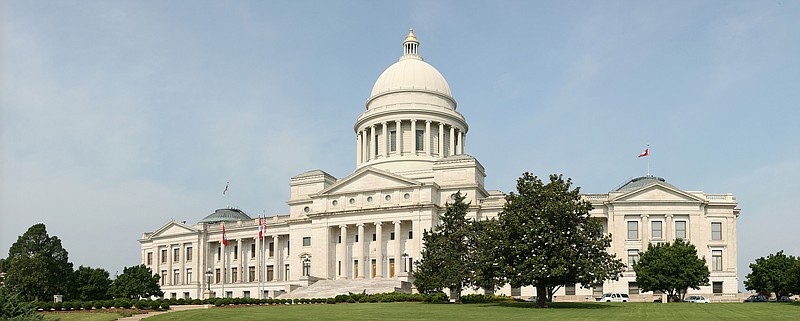A minimum-wage increase passed by more than two-thirds of Arkansas voters in the November election would be partially undone by legislation filed Wednesday by state Sen. Bob Ballinger, a Republican from Hindsville.
Ballinger's proposed legislation, Senate Bill 115, would exempt anyone under the age of 18 from the state's minimum wage, as well as anyone employed at a school, preschool, college, nonprofit organization or business with fewer than 50 employees.
As set out in the initiated act approved by voters in the 2018 general election, Arkansas' minimum wage rose to $9.25 an hour on Jan. 1 and is set to incrementally increase to $11 in 2021. Employers and workers covered by SB115 would be exempt from that increase, as well as from the previous $8.50 minimum wage approved by voters in 2014.
Only the federal minimum wage of $7.25 per hour would apply to workers affected by Ballinger's bill.
"I totally get the people voted," Ballinger said. "I really don't think the people intended to put their mom-and-pop businesses out of business. They didn't want to shut down ministries and nonprofits, they didn't want to make it where if a business wants to take a chance on a 16-year-old kid, they have to pay him $11 an hour. That wasn't the intent."
Democrats on Wednesday quickly denounced the plan as an effort to sidestep voters.
"It is a direct affront to the will of Arkansas voters who overwhelmingly wanted to see a minimum-wage increase," said Rep. Nicole Clowney, D-Fayetteville. "I guarantee when Arkansas voters voted in favor of a minimum-wage increase, they intended that for all Arkansas workers, including, for instance, the aides in our children's kindergarten classrooms."
The Arkansas Constitution requires a two-thirds vote of both chambers to amend any part of an initiated act, and Democrats currently make up about a quarter of both the House and Senate.
However, Ballinger said his bill -- which expands upon the definitions of "employee" and "employer" that were not changed by either wage increase -- might not be affected by the two-thirds requirement.
Ballinger, an attorney who was recently elected to the Senate after three terms in the House, said he wanted to get two-thirds support to avoid any doubts, though he declined to say what he would do if his bill failed to pass such a threshold.
David Couch, the attorney who led the petition drive for the minimum-wage measure, said Wednesday that Ballinger's legislation was "horrible" and that it would require a two-thirds vote to pass.
"Surely there are nine or 10 Republicans out there who would vote against this," Couch said, noting that the exemption would apply to many hospitals and nursing homes that operate as nonprofits.
It's unclear what percentage of Arkansas' workforce Ballinger's proposal would cover, though Couch estimated that it would affect more than half of all employers.
Randy Zook, the director of the Arkansas State Chamber of Commerce, did not return a request for comment. The chamber opposed the minimum-wage increase.
___
Information from Arkansas Democrat-Gazette, Arkansas Online.

